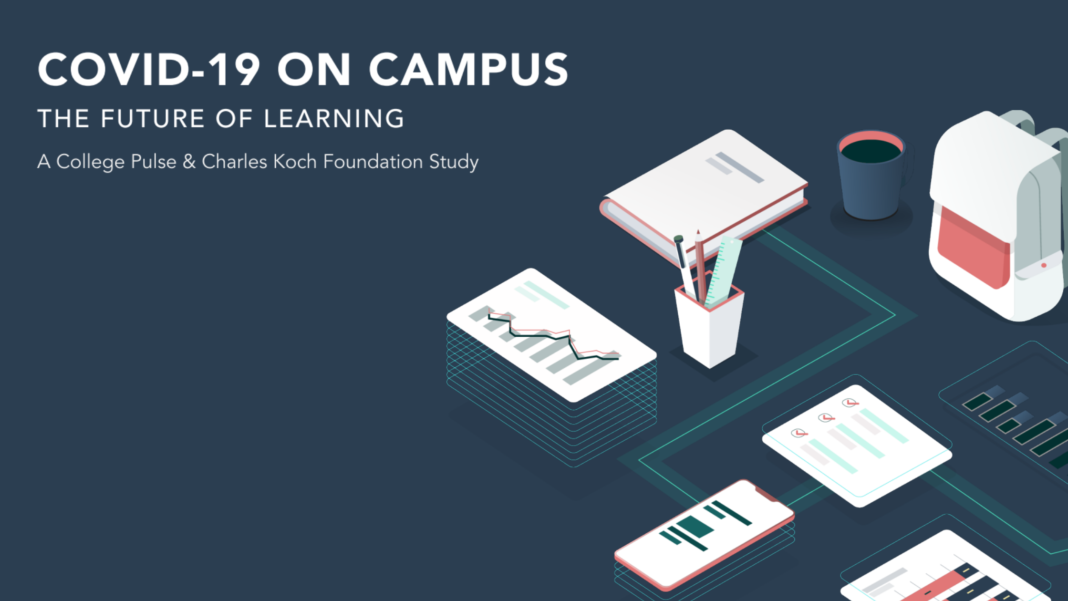
College student’s concern regarding the impact of COVID-19 on their education is at an all time high. In a recent study we released in partnership with the Charles Koch Foundation, we’ve found that most full-time undergraduates see online education as less effective than in-person education, and more than 90 percent think they should pay less for it. Our study, which included responses from 5,000 full-time undergraduates at more than 200 U.S. universities, also found that most students thought their institution responded effectively to the COVID-19 pandemic, and the majority think online programs could be improved through the use of better technology.
“At a time of unprecedented uncertainty in higher education, it’s more important than ever for institutional leaders to listen to — and prioritize — the voices of their students,” said Ryan Stowers, executive director of the Charles Koch Foundation. “Online learning has tremendous promise as a tool to help institutions scale high-quality education. This survey makes clear that while many students still prefer in-person learning, the pandemic is creating a renewed sense of urgency among both students and instructors to implement technologies that can facilitate more effective remote learning.”
With the fall semester approaching, we believe these findings can uncover challenges with online learning programs and help university leaders develop strategies for the 2020 – 2021 school year.
Here is what our research covers:
- Student opinion of university responses
- Student perspectives on online learning
- What students value in higher education
To gain access to more insights, download our free report.
Methodology
The survey was drawn from College Pulse’s American College Student Panel, which includes more than 385,000 undergraduate students representing more than 1,000 two- and four- year colleges and universities in all 50 states. The panel includes students attending large public universities, small private colleges, online universities, historically black colleges, and religiously affiliated schools.





